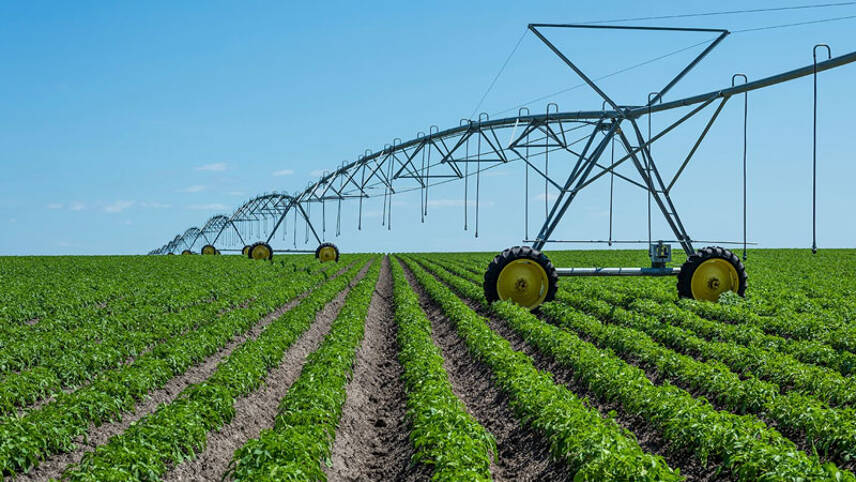Register for free and continue reading
Join our growing army of changemakers and get unlimited access to our premium content

Image: Walmart
The two companies announced an intention to back the collaboration with $120m of funding on Wednesday (26 July), along with a target to benefit more than two million acres of farmland in North America by the end of 2030.
Regenerative practices include adopting low-till methods and planting cover crops.
Regenerative agricultural practices purport to improve soil quality, thereby increasing the ability of soil to draw down and sequester carbon.
Adopting regenerative methods can also reduce water consumption and help farmers to use and waste less pesticides and fertilizers. This can have a knock-on effect of reducing emissions and preventing pollution.
Walmart and PepsiCo estimate that the two million acres will be able to deliver more than four million metric tonnes of greenhouse gas reductions and removals.
Scaling up
The Sustainable Markets Initiative (SMI) estimates that just 15% of the world’s croplands by area size are farmed using regenerative practices at present. It is advocating for this proportion to reach 40% by 2040 in alignment with the Paris Agreement on climate.
PepsiCo had already committed to facilitate the adoption of regenerative agriculture across seven million acres globally. This is around equivalent to its total agricultural footprint. While the brand may be best known for soft drinks, it also produces snacks using crops such as potatoes and corn.
Similarly, Walmart and its philanthropic Foundation had previously stated an ambition to improve sustainable management practices on 50 million acres of land by 2030.
The new collaborative project will entail enabling farmers to access a new support programme involving both PepsiCo and Walmart. The programme will help farmers financially as they transition to regenerative approaches. They will also be able to access practical support from agronomists.
PepsiCo’s chief sustainability officer Jim Andrew said the scheme will only be possible with strong buy-in from its network of farmers.
Andrew said: “Farmers know their business better than anyone else, and what we hear from them is that for regenerative agriculture to make business sense, three things need to happen. They need economic support, social and cultural support, and agronomic support.”
Similarly, Walmart’s VP for sustainability, Jane Ewing, explained that the retailer will emphasise the benefits to farmers’ yields and livelihoods – both in the near-term and the long-term.
PepsiCo and Walmart both source potatoes, oats, corn, wheat, soy and rice from North American farms, making these the focus areas for this collaboration initially.
Walmart’s Ewing said the model could, in the future, be “mimicked” in other categories.
Related news: Science-based roadmap to 1.5C promised for food systems at COP28 climate summit


Please login or Register to leave a comment.